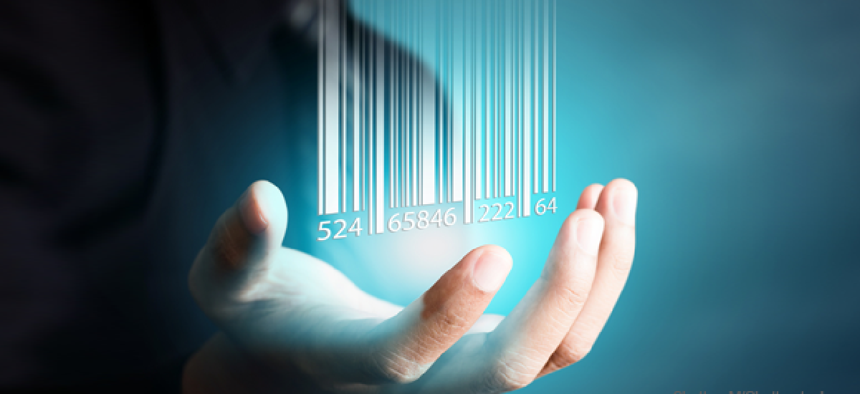Connecting state and local government leaders
Barcodes save agencies time and reduce costs by efficiently tracking and managing assets, streamlining workflows and reducing human error.
Barcode technology has been around for some time, but government organizations are still benefiting from its use. Some applications come easily to mind; barcodes are common on agency ID cards and are frequently used for access control to a facility. They can be used for tracking assets and tagging evidence in investigations
In Pennsylvania, the Buffalo Valley Regional Police Department scans the barcodes on drivers' licenses and registration cards into an app that populates citation forms, allows officers to print citations in their vehicles and sends the record of the citation to the courts. Officers noticed a significant increase in citation accuracy, in addition to spending less time writing up each citation.
The Vancouver Police Department uses barcodes for inventory and tracking more than 5,000 assets worth more than $3 million, which substantially decreases the amount of lost funds and equipment. The system also helped the department meet city and state auditor guidelines that mandated documentation for asset transfers and disposal.
Before implementing a barcode solution, however, agencies should understand what they're getting into.
There are two major barcode types. A 1-D barcode is a one-dimensional linear barcode made up of vertical lines with varied widths and specific gaps forming a pattern. 2-D barcodes encode data in square or rectangular patterns and can represent more data per unit area and support a bigger character set than 1-D barcodes. The downside to 2-D codes is that they require more complex scanning devices.
Selecting the appropriate barcode depends on what type of information needs to encoded. A 1-D barcode's limited character set works well for asset tracking, while a 2-D barcode would be more suited to marketing.
The Los Angeles County Bar Association opted to use 1-D barcodes for tracking IT assets such as computers, switches, monitors, phones and more to help with accounting and IT troubleshooting. Each IT device was assigned a unique identifier that can be read with a barcode scanner.
That UID can call up a device's related invoice, the budget line item used to purchase it, the vendor from which it was purchased and more. If an employee’s phone breaks, a simple barcode scan can instantly determine who bought it, when, from whom and whether it’s still under warranty. Before using barcodes, IT and accounting had to match serial numbers to past invoices to determine a vendor and warranty status.
A device’s associated UID information also calls up the technical details IT needs for a device. For example, if a desktop computer’s barcode is scanned, the model number and other specifications are also available: disk size, memory capacity and more. This information helps expedite troubleshooting.
The IT team at Los Angeles County Bar Association is considering barcoding employees' cubicles as logical assets, which would let it group physical device information with network diagrams, documentation and any other information relevant to that space. Information from other monitoring systems could also be included, such those that track the usage, health and capacity of specific devices and components. This creates levels of efficiency across teams.
Such tracking could transform IT troubleshooting. IT managers would have visibility into a device, such as its current available disk space, or into the server-side log files for that machine. This would save a significant amount of time over the course of daily operations.
If an employee has an issue connecting to a network resource, for example, the barcode on any device can provide complete end-to-end picture in a snap, with drill-down features. IT staff can see the current state and configuration of the computer, which patch panel the Ethernet port connects to, the switch connected to that panel, etc. Today, this information frequently must be manually assembled. Using barcodes to correlate the physical world and intelligent software systems saves time.
Barcodes could also simplify the onboarding process of new staff. With a simple barcode scan of a new employee’s cubicle, new-hire information could be presented to that person electronically rather than in paper. Contractor access could also be controlled by employing levels of permissions with a logical grouping of information. In this case, a barcode scan can help easily define who has access to what data. For example, contractors might be given access to logs specific for them rather than being granted access to a whole server or system.
Barcodes are implemented in government applications because they save time and reduce costs. They can also be vital to efficiently track and manage assets, whether it be a computer or a police car. They can also streamline workflow and help reduce human error.
To achieve these advantages, however, agencies must properly implement barcode technology by involving software development teams as well as users from the start of planning through development and testing.
NEXT STORY: Data USA adds new functionality



